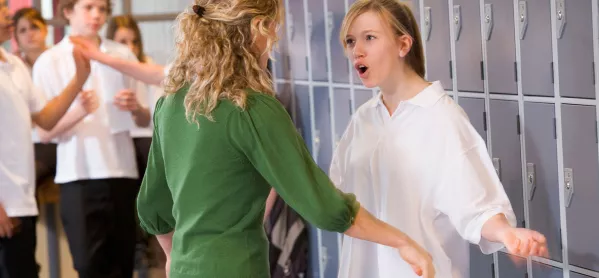An interview from 2007 has come to light in which Conservative London mayoral candidate Shaun Bailey praised the discipline shown by his teachers because they "were men, then".
He stated that: "When I was a kid, there was none of that PC nonsense. If you were wrong, they told you so. The teachers were men, then."
Mr Bailey may have had an educational experience comprised largely of men, yet in early years and primary, the lack of male teachers is well known. I’m not sure which part of his educational journey he is referring to, but I’m fairly sure it won’t have been at nursery school.
I’ve taught in secondary for a while, in fairly challenging parts of London, and I think that it’s safe to say that classroom management, behaviour and discipline does not always fall so naturally to our male colleagues.
Classroom discipline isn't about gender
The reality is that good classroom management and discipline is not about the gender or the size or the age of the teacher. It’s about the relationships they form in the classroom with their students. It’s about the range of strategies that they have in their teacher toolkit.
The idea that men immediately instil some kind of instant discipline is an absolute farce. I have seen grown men at their wits' end when dealing with a particular student or class. I have seen tall men, short men, bearded men and the rest, struggling with a challenging group or student. To say that "men" can instantly assume the role of the disciplinarian is just not true, Mr Bailey.
He went on to say that, "Our teachers were men, and we looked up to them. It was not a democracy. In today’s drive for children’s rights, we’ve forgotten to give them responsibility."
I think he’s implying that we shouldn’t respect female teachers or that female teachers are unable to command the same level of respect as their male counterparts.
Well, Mr Bailey, I work in a boys’ school, I am a female, 5ft 4in on a good day with heels. Most – if not all – of my students are taller than me. I have broken up fights, helped students during exams and stressful times. I have supported students during a school lock-in. I’ve been a shoulder to cry on when things have become difficult. But I have also been able to discipline students using the methods at my disposal when necessary.
Discipline is not about your height, physical prowess or your gender. It is about the systems that are in place within your setting, and the relationships that are ultimately forged with the students, all enhanced with backing from home.
The triangular network of support for our young people, when at its optimum, works best to enable our students to fulfil their potential. Education is not a dictatorial process, but an interactive journey that allows the young people to think freely and use their initiative.
I actually feel a level of sympathy for Mr Bailey. Did his education not allow him the freedom and space to consider the alternative? It seems that his narrow view has left him to believe that there is only one way to discipline a young person. The reality is that there is a plethora. Regardless of your gender.
Anjum Peerbacos is a secondary English teacher in London




